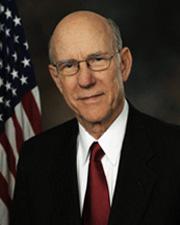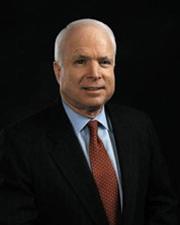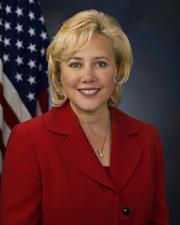0
African Growth and Opportunity Act
3/12/2024, 12:05 PM
Congressional Summary of S 666
TABLE OF CONTENTS:
Title I: Trade Policy for Sub-Saharan Africa
Title II: International Financial and Foreign Relations
Policy for Sub-Saharan Africa
African Growth and Opportunity Act - Declares the support of the Congress for the economic self-reliance of sub-Saharan African countries committed to economic and political reform, market incentives and private sector growth, eradication of poverty, and the importance of women to economic growth and development.
(Sec. 4) Makes a sub-Saharan African country eligible to participate in programs, projects, or activities, or receive assistance or other benefits under this Act if the President determines, according to specified evidence, that it does not engage in gross violations of internationally recognized human rights, and has established, or is making continual progress toward establishing, a market-based economy.
Directs the President to monitor and review the progress of sub-Saharan African countries to determine their current or potential eligibility under the requirements of this Act. Makes ineligible to participate in programs or receive assistance or other benefits under this Act any countries that have not made progress in meeting such requirements.
Title I: Trade Policy For Sub-Saharan Africa - Directs the President to convene annual high-level meetings between U.S. Government officials and officials of the governments of sub-Saharan African countries to foster close economic ties between them. Directs the President to establish a United States-Sub-Saharan Africa Trade and Economic Cooperation Forum, which shall, among other things, encourage joint ventures between small and large businesses. Directs the United States Information Agency (USIA), in order to assist the Forum, to disseminate economic information in support of the free market economic reforms contained in this Act. Authorizes appropriations (but with a bar on the use of funds to create or support any nongovernmental organization whose aim is to facilitate trade between the United States and sub-Saharan Africa).
(Sec. 102) Directs the President to develop a plan meeting certain requirements to enter into one or more trade agreements with certain eligible sub-Saharan African countries to establish a United States-Sub-Saharan Africa Free Trade Area.
(Sec. 103) Expresses the sense of the Congress that reform of trade policies in sub-Saharan Africa that removes structural impediments to trade, consistent with the World Trade Organization (WTO), can lay the groundwork for sustained growth there in both textile and apparel exports. Directs the United States, pursuant to the Agreement on Textiles and Clothing, to eliminate the existing quotas on textile and apparel exports to the United States from Kenya and Mauritius, provided they adopt a visa system to guard against the unlawful transshipment of such goods and the use of counterfeit documents. Directs the President to: (1) continue the existing no quota policy for sub-Saharan African countries; and (2) report to the Congress on the growth in textiles and apparel exports to the United States from such countries in order to protect U.S. consumers, workers, and textile manufacturers from economic injury on account of the no quota policy. Sets forth enforcement procedures (including penalties) for violations of the requirements contained in this Act.
(Sec. 104) Amends the Trade Act of 1974 to authorize the President to provide duty-free treatment for any non-import-sensitive article that is the growth, product, or manufacture of an eligible sub-Saharan African beneficiary developing country.
Waives the competitive need limitation with respect to eligible countries in sub-Saharan Africa. Extends duty-free treatment to sub-Saharan African beneficiary developing countries through June 30, 2009.
(Sec. 105) Directs the President to establish the position of Assistant United States Trade Representative for African Affairs within the Office of the United States Trade Representative to direct and coordinate interagency activities on U.S.-Africa trade policy and investment matters.
(Sec. 106) Directs the President to report to Congress on U.S. trade and investment policy for sub-Saharan Africa and on implementation of this Act.
Title II: International Financial and Foreign Relations Policy For Sub-Saharan Africa - Expresses the sense of the Congress that: (1) the Secretary of the Treasury should instruct the U.S. Executive Directors of specified international financial institutions to use their votes to encourage their institutions to develop enhanced mechanisms which further economic and trade reforms and deep debt reduction under the Heavily Indebted Poor Countries (HIPC) debt initiative in eligible sub-Saharan African countries; and (2) relief provided to such countries under the HIPC debt initiative should primarily be made through grants rather than through extended-term debt, with interim financing for eligible countries that establish a strong record of macroeconomic reform.
(Sec. 202) Expresses the sense of the Congress that the stated policy of the executive branch in the 1997 Partnership for Growth and Opportunity in Africa initiative is a step toward the establishment of a comprehensive trade and development policy for sub-Saharan Africa and is a companion to the policy goals set forth in this Act. Directs the President, in addition to continuing bilateral and multilateral economic and development assistance, to target technical assistance toward: (1) developing relationships between U.S. firms and firms in sub-Saharan Africa; (2) providing assistance to sub-Saharan African countries to liberalize trade and promote exports, bring their regimes into compliance with WTO standards, make financial and fiscal reforms, and promote greater agribusiness linkages; (3) addressing critical agricultural policy issues as market liberalization, agricultural export development, and agribusiness investment in processing and transporting agricultural commodities; (4) increasing the number of reverse trade missions to growth-oriented sub-Saharan African countries; (5) increasing trade in services; and (6) encouraging greater sub-Saharan participation in future WTO negotiations on services and making further commitments in their schedules to the General Agreement on Trade in Services in order to encourage the removal of tariff and nontariff barriers.
(Sec. 203) Expresses the sense of the Congress that the Overseas Private Investment Corporation (OPIC) should exercise its authorities to initiate, in addition to any existing fund, an equity infrastructure fund or funds in support of projects in sub-Saharan African countries, particularly projects that expand opportunities for women entrepreneurs and employment for the poor.
(Sec. 204) Amends the Foreign Assistance Act of 1961 to direct the Board of Directors of OPIC to increase financial assistance in sub-Saharan Africa.
Amends the Export-Import Bank Act of 1945 to make similar changes with respect to the Export-Import Bank of the United States.
(Sec. 205) Directs the Secretary of Commerce, subject to the availability of appropriations, to take steps to ensure that at least 20 full-time U.S. and Foreign Commercial Service employees are stationed in sub-Saharan Africa, including that full-time Service employees are stationed in not less than ten different sub-Saharan African countries.
Directs the Service to take specified action to encourage the export of U.S. goods and services to sub-Saharan African countries.
(Sec. 206) Expresses the sense of the Congress that, to the extent appropriate, the U.S. Government should make every effort to donate to governments of eligible sub-Saharan African countries air traffic control equipment that is no longer in use, including appropriate related reimbursable technical assistance for such equipment.





